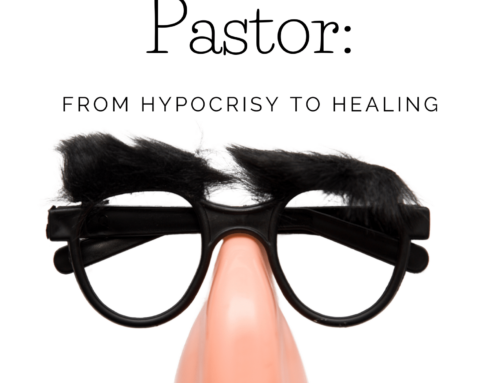Illustration by Raquel Aparicio
A common abusive tactic that can be used by those in positions of spiritual authority is what I call, “weaponizing forgiveness”. Forgiveness is a beautiful thing, that can be vital to your own healing and liberation, yet it must be understood more fully, rather than used to gain power and control over another person’s behavior. Weaponizing forgiveness can be sly, and at times difficult to recognize, manipulating and conflating many biblical principles into a position that serves the one in power and whatever their agenda is at that time. They don’t care as much about your heart or the healing process as much as getting the “act” of forgiveness completed. So what does it mean to weaponize forgiveness and how can we spot it when it is used against us?
Weaponizing Forgiveness looks like this:
-
Pressuring to forgive quickly without proper grief, and/or repentance for the pain that was inflicted.
-
Misquoting and taking Biblical verses out of context on the topic of forgiveness to use and manipulate the victim of harm into bypassing their own heartache and betrayal.
-
Getting you to forgive is more important than understanding how the perpetrator hurt you and teaching the perpetrator of harm how to change their behavior in the future.
-
It’s not about feeling it’s about doing. Meaning, it’s about checking off the box, getting your spiritual points per se, doing what looks “right” in front of others, and being a “good” Christian. Think of Pharisees in Jesus’s day. It’s not about caring for the victim’s heart or soul.
-
It’s about moving on and making everything back to pretense as quickly as possible to the peaceful Christian utopia fantasy. The semblance of peace is the highest priority, not truth-telling or truth-living.
-
Confusing forgiveness with reconciliation. This common practice of spiritually bypassing deep hurt and pain is that you should magically be back in a relationship with the one who just did you great harm. “Forgive and forget” is a common false mantra. This is one of the reasons so many women return to their abusive partners through the guidance of their pastor. Genuine forgiveness does not mean you must reconcile and be back in a relationship with that person, sometimes too much harm has been caused and to live in truth the relationship must be ended.
-
Getting friends, family, and religious leaders to also pressure you into moving on. The thinking is, if your community pressures you then that will fix you ie. “the real problem”. This point can hurt so deeply because the level of betrayal is communal. The problem is that the entire community has been hoodwinked into thinking forgiveness is a way to escape the pain of the crucifixion when in reality forgiveness invites you more deeply into it.
Forgiveness is vital for one’s own mental health, but forgiveness comes in waves, much like birth contractions. Forgiveness should not be forced, coerced, or pressured before ready to come through you and into the world. Forgiveness takes time to develop and mature, and that is okay. Let it grow deep roots, and let it marinate until it soaks into your bones. If you give birth to forgiveness it doesn’t mean you don’t have boundaries with it. You protect it and you are wise with who you let hold it.
In my own life, my journey with my father comes to mind. Five years after his death I still feel it in my body. Most days I can forgive him and grieve our story together. Other times it still infuriates me. How could he?! How could he not father me?! I am pretty awesome, my kids are beautiful and stunning how could he not ever get to know them? Why couldn’t he see beyond his own pain? He chose to be a coward, and some days I can’t get to forgiveness. That is okay as well. I must be kind and bless my forgiveness journey. I must make peace with all that feel inside of me. I am to make peace with my story so that I can once and for all say YES, to the full complexities of love and liberation and an emphatic NO, to abuse, manipulation, and perversions of forgiveness that God meant for our good and freedom.






